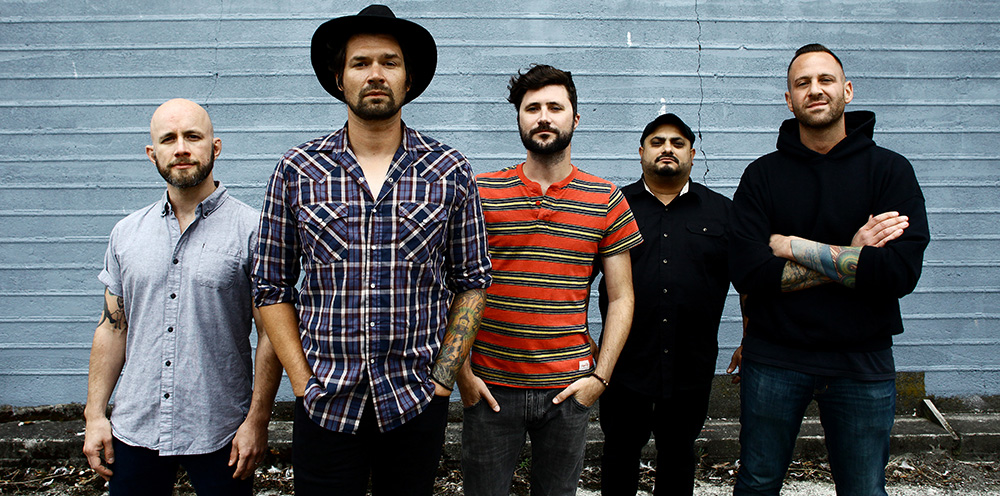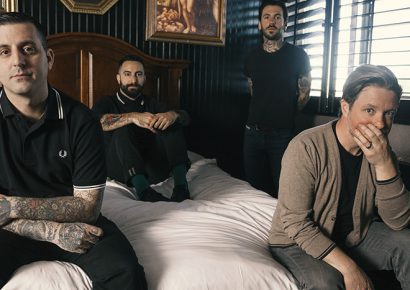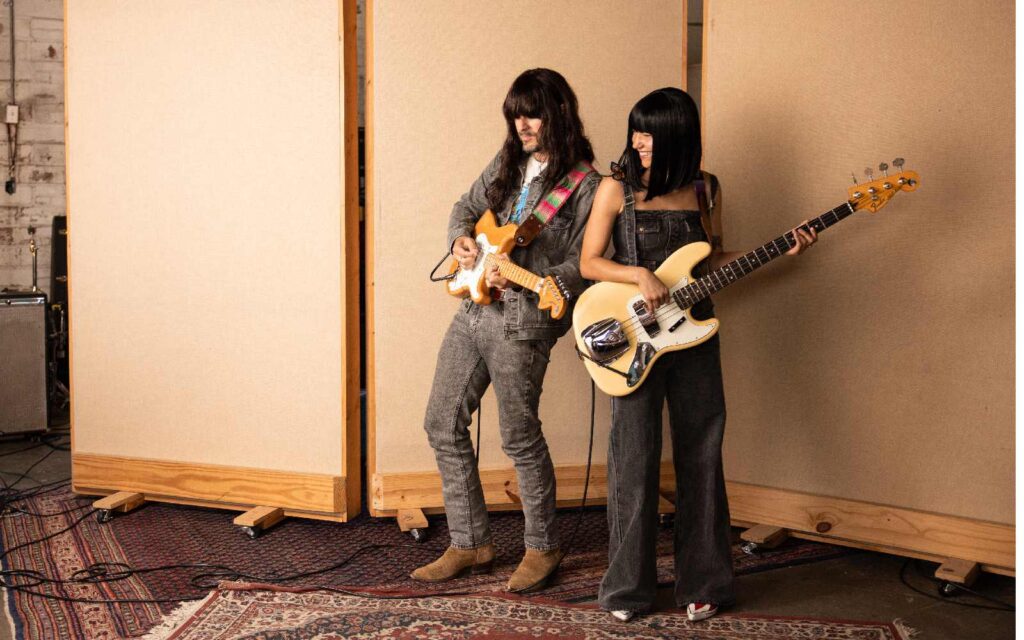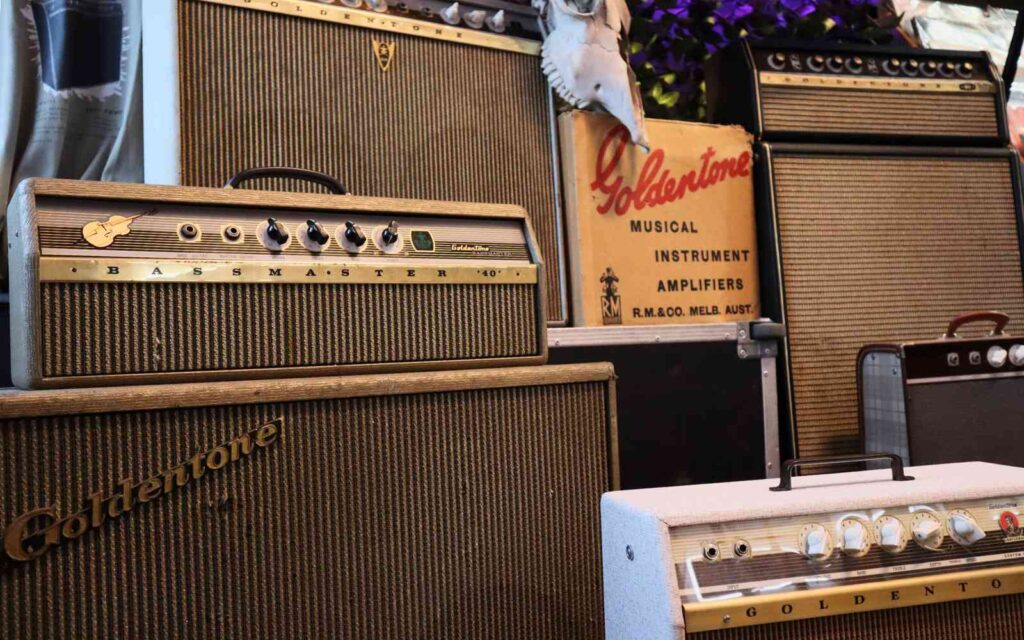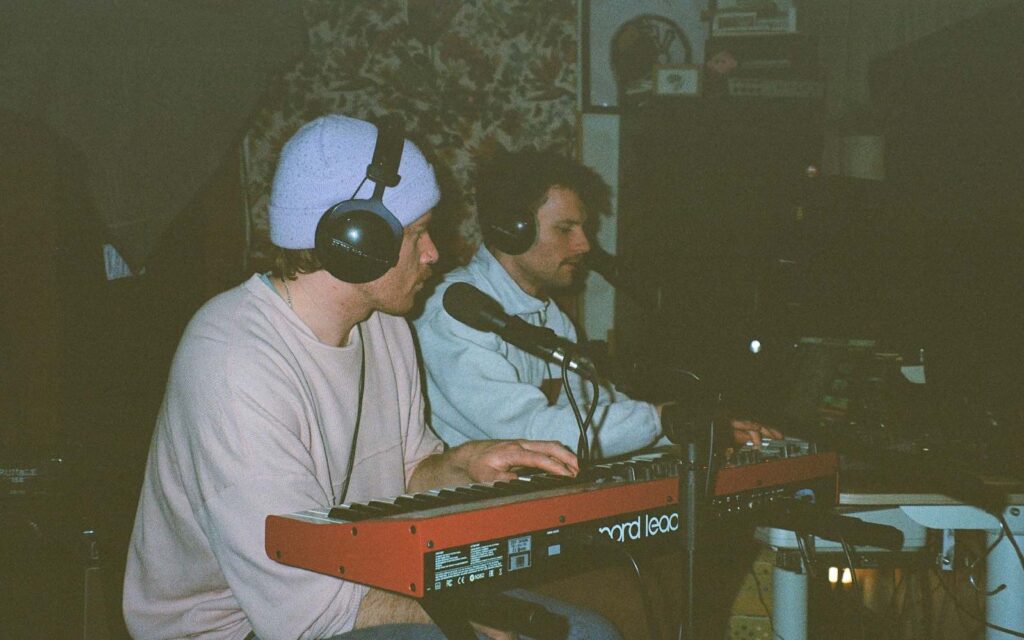“That song kind of came from this folky idea that John [Nolan, guitarist] had while he was messing around on an acoustic guitar,” explains Adam Lazzara, who has served as the band’s lead vocalist since 2001 and sings on all of the band’s studio albums. “He brought it to the band, and somehow it just turned into this Ramones/Clash-style song. That’s the kind of music that the five of us have all been listening to ever since we were kids, and the spirit of that has definitely been in our music for as long as we can remember. After so many records and so many years though, we were finally at a point where we truly felt comfortable wearing that kind of influence right there on our sleeves. I think there have been times in the past where we’ve been a little too careful with the music that we make. For us, it was really refreshing to not worry about anything else but us making the kind of record that we wanted to make. When it was all said and done, we were just looking around the room at one another thinking, ‘Holy shit, we just did that.’”
Tidal Wave arrives two years after the release of the band’s last LP, Happiness Is. It also marks a particularly unique milestone for Taking Back Sunday as an entity – this is the only time in the band’s history that the same line-up has recorded three consecutive albums together. After the release of their debut album, 2003’s Tell All Your Friends, both founding member Nolan and bassist Shaun Cooper quit simultaneously, only to return seven years later as a revival of the so-called “classic” line-up of the band. Now with six years of solid foundation, Lazarra sees the band as having something to prove – that there is still vitality and energy running through their collective veins, 17 years on from the band’s inception.
“It seems to be a pretty universal experience that if a band or an artist has made it to their seventh album, there’s a fairly good chance that they’re really settled into what they do,” he says. “They keep putting out the same kind of songs over and over. For us, we wanted to do our best to avoid that. We wanted the record to be a reflection of us – how we’ve grown and how we’ve changed as we’ve gotten older. In order to stand by that, we had to be honest as we could – it was a matter of our music saying in its own way, ‘Fuck it – this is who we are, and this is what we can do.’”

If you’re in your mid-20s, then you unquestionably bore witness to the ‘emo’ trend through your high school years – and, indeed, there’s even a chance that you partook in said trend if you’re reading this. For many, Taking Back Sunday were an inextricable part of that time in their lives; faithfully soundtracking every waking moment – and, as much as people can change, you never truly forget things like that. The relationship with the band is weighted equally in coming-of-age nostalgia and an investment in their continuing work, which is something that Lazzara does not take for granted in the slightest.
“I have a hard time getting my head around things like that – and I mean that in the best way possible,” he says. “To know that we’ve grown with people that listen to this band – and that they’ve grown with us – is a huge compliment. The thing with music, or any kind of art, is that certain things are going to hit you at certain points in your life. You find something, and you feel like you were meant to hear it or experience at that exact moment. The fact we’ve been able to meet up with people so many times over the years on similar paths that connect with our music because of that… It’s such a great thing. It’s really nice to know that we’re not alone. We’re writing from a place of our own experiences, and to know that resonates with people is absolutely incredible.”
It’s a difficult balancing act between the band members being on the road and being at home – all of the band have families and young children that they want to provide for, but also be there for at pivotal times. With that in mind, Lazarra feels like the band’s own version of fatherhood is managed responsibly – and it’s something that could have only happened now; as opposed to when the band was at its fever pitch of touring.
“I don’t think that they know it’s a little weird – they’ve all kind of adapted to not seeing their dads for six weeks at a time,” he says of the second-gen of Taking Back Sunday. “It definitely makes it harder to leave home – which is so funny, when I think about being the one in the band all those years ago that was adamant about touring as much as possible. I’d just say to our agent, ‘I don’t care what you have to do – just keep us on the road.’ Now, it’s very much the opposite. At the very least, one key difference between now and when we first started touring is the advent of things like Skype and FaceTime – stuff like that definitely makes things a little easier to stay close to home.”
Touring in support of Tidal Wave is very much underway, and it will arrive in Australia next March for the band’s first visit in nearly three years. With the recently reformed US act Acceptance joining the band for all dates, the tour takes in theatres in most capital cities and marks a step-up from the clubs that the band have previously played as a headlining act here.
“It’s so great to see that people are still so engaged with this band – especially on the other side of the world,” says Lazarra. “We’ve always wanted to go to Australia more. All of us just love it there. To have it not only be a bigger tour than last time, but to have it include some of the biggest shows that we’ve ever played on our own there, is so gratifying and validating. Still, knowing me, I’ll just be pacing around back and forth as always, hoping people show up.”
Tidal Wave is out now via Hopeless Records. Taking Back Sunday will be touring Australia in March next year. For tour dates, head to takingbacksunday.com.
